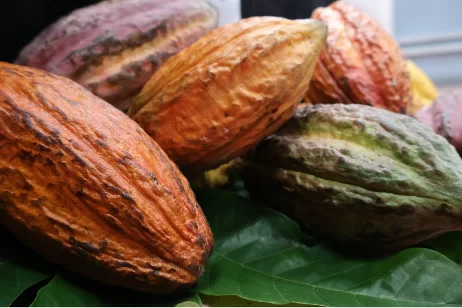The United Nations Food and Agriculture Organization (FAO), in collaboration with the Cocoa Research Centre (CRC) at the University of the West Indies (UWI), recently hosted a two-day regional dialogue on the future of the cocoa industry. Held from November 13 to 14, 2025, at the UWI School of Education in St. Augustine, Trinidad and Tobago, the event brought together government representatives, academic institutions, producer organizations, private sector stakeholders, and regional development partners. The primary focus was to create a roadmap for revitalizing the Caribbean cocoa industry, particularly emphasizing fine-flavor cocoa. Anne Desrochers, FAO specialist in plant production and protection, opened the workshop on behalf of FAO subregional coordinator Renata Clarke. She highlighted the Caribbean’s comparative advantage in producing some of the world’s most distinctive cocoa varieties but stressed the need for coordinated action to address productivity and sustainability challenges. ‘The Caribbean has a proud cocoa heritage, but we must strengthen collaboration to modernize the sector,’ Desrochers stated. She emphasized that science, innovation, and regional cooperation could transform the industry into a model for sustainable agricultural development. The FAO has supported the cocoa sector in the Eastern Caribbean for several years, providing training and capacity-building for over 300 stakeholders in Dominica, Grenada, Saint Lucia, and Saint Vincent and the Grenadines. Trinidad and Tobago is one of five global demonstration countries under the FAO’s One Country One Priority Product (OCOP) initiative, with cocoa as the priority commodity. The program aims to enhance the competitiveness and sustainability of key agricultural value chains. Karen Lee Lum of the CRC provided an update on the OCOP initiative, which began in Trinidad and Tobago in 2022 and is now entering its second phase with support from China’s South-South Cooperation. ‘Trinidad and Tobago’s fine-flavor cocoa is unique—it is one of only seven countries worldwide exporting 100% of its production as fine-flavor cocoa,’ Lee Lum noted. The new phase, valued at $5 million, will expand to 15 countries, focusing on research, farmer engagement, market access, and green technologies. The workshop facilitated discussions on country-specific progress, innovation exchange, and consensus-building for a regional strategy to further develop the cocoa industry. The roadmap aims to promote sustainable production, added value, and improved market opportunities for Caribbean cocoa.
